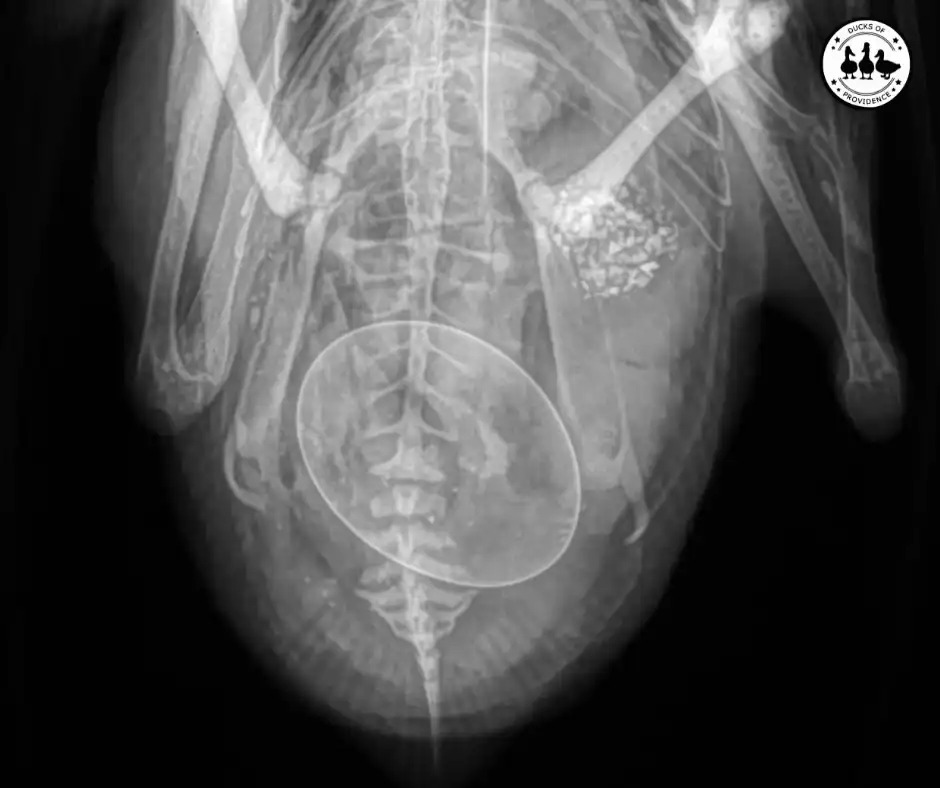
How We Treated Our Egg-Bound Duck Penny (Case Study)
Last updated: January 15th, 2026
Our sweet Ancona duck, Miss Penny, was egg-bound ❤️🩹I am sharing our experience with you in this case study so that you can get a better idea of what egg-binding in ducks looks like, how to identify it, and how to treat it.
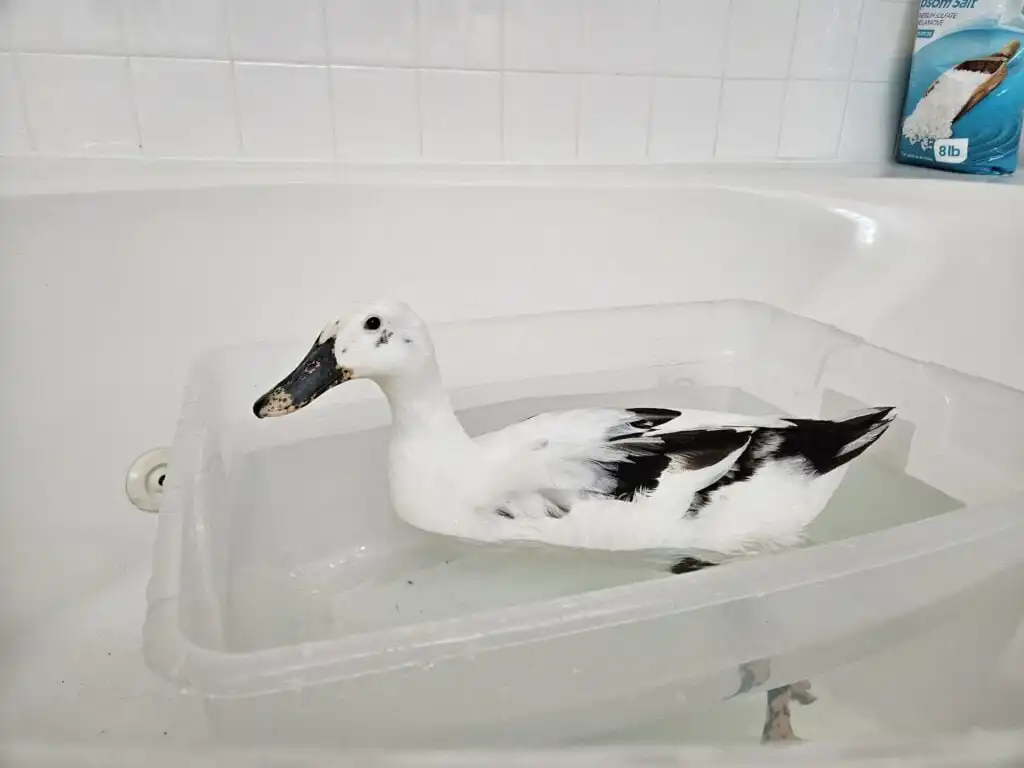
How I Noticed that My Duck Penny was Egg-Bound
When I went out to the ducks to give them some treats, I noticed something was wrong with Penny. She is usually the first one when it comes to food. But instead of being excited about the snacks, she was just sitting in the water tub and very lethargic. She didn’t come out but was just sad-looking. It is hard to describe, but when you know your ducks, you can see it in their eyes when they are not feeling well. But she would at least eat a few snacks out of my hand. I left her for now, hoping she would do better soon.
She was still the same when I returned later that evening to give the ducks their dinner (dinner means a big bowl of fresh veggies in water). She didn’t want to eat with the others; she was just drinking water. Again, that was super unusual for her, as she is our very hungry caterpillar (this is what we call her sometimes because she is so excited about food). After a few sips of water, she went to lie down under the coop.
Two hours later, when I came out to put the ducks to bed, she was still under the coop, didn’t move an inch, and didn’t want to go inside the coop for the night. That got me very worried 😟
I brought her immediately inside to examine her further. I noticed how she was straining and pumping her tail, which told me she had trouble laying an egg. When ducks lay eggs or attempt to, you can see their tail and lower body muscles doing these rhythmic movements, which is how they press the egg out. She also had some white, soft mass hanging out her vent.
How We Treated Our Egg-Bound Duck
We have had ducks with egg problems in the past, so we already have some experience with this condition. A very good home remedy for an egg-bound duck is to make a warm bath for her. That usually helps the ducks to get eggs that are either soft or stuck out.
The warm water helps relax their muscles, and the ability to float in the water takes the load off their bodies. Think of it like a water birth for a woman in labor: the muscles don’t need to work as hard, making it easier to change positions. Being relaxed lowers stress hormones, giving you a sense of reduced pain and potentially aiding your labor….or laying an egg in a duck case.
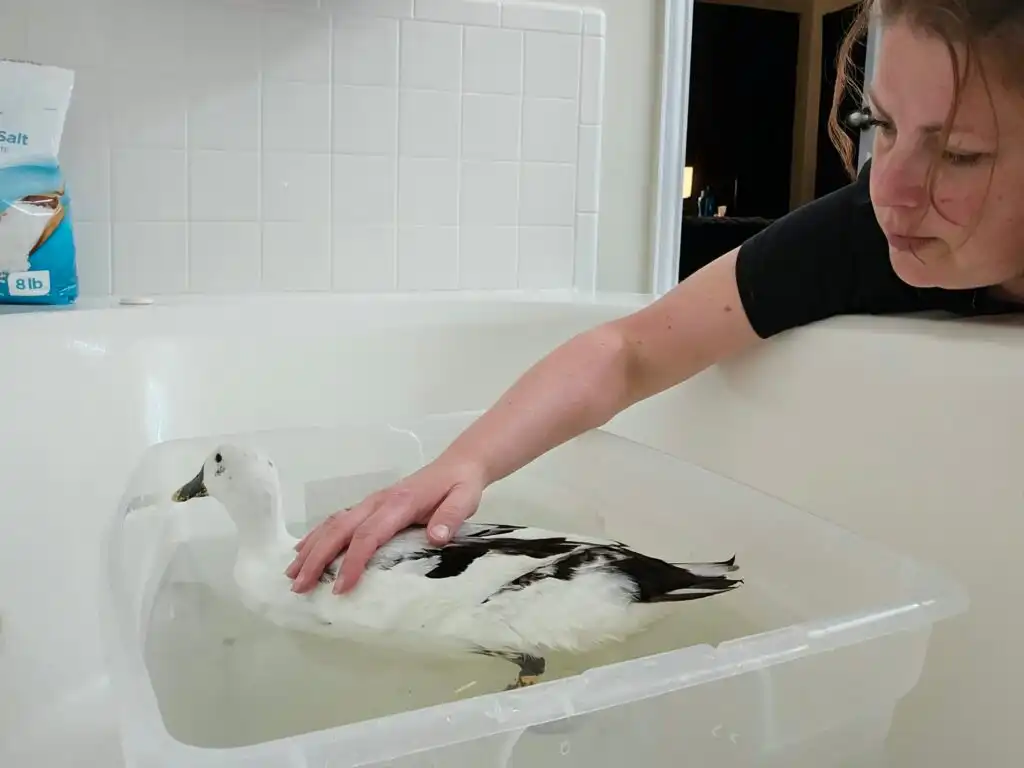
You can also add Epsom salt to the water. This helps relax the muscles and is also antiseptic. I didn’t do it that night because I wanted to act quickly and didn’t want her to drink it. Ducks should not drink too much Epsom salt water because it causes diarrhea and can dehydrate them. When ducks are egg-bound, they need to stay hydrated very well. You may notice that they are drinking extremely much when they are experiencing problems like this.
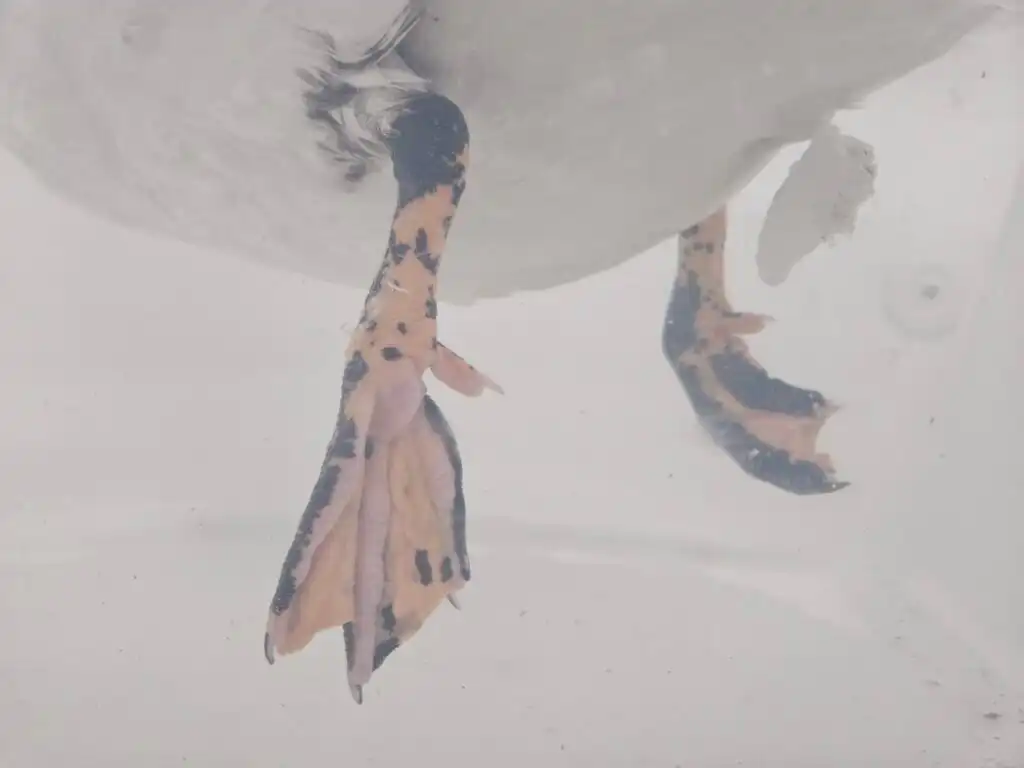
I kept Penny in her bath for about 90 minutes. During the first half hour, she laid parts of a soft-shelled egg. It was some white stuff that looked like a deflated white balloon. It was likely a mix of the shell membranes and albumen (egg white) from an unfinished egg.
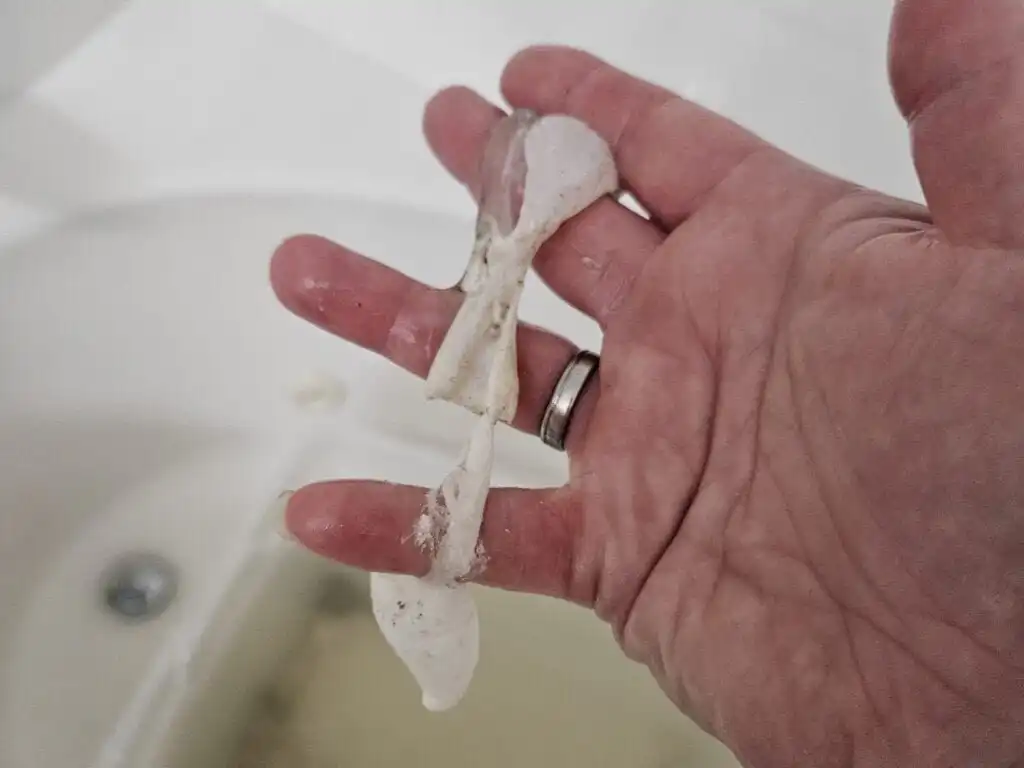
After that passed, she was still straining. I suspected she was egg-bound with another egg. I carefully examined her belly and could feel the egg. I left her in the bath for another hour, but nothing else happened.
The Danger of Egg-Binding
But she was at least able to poop, so that was a good sign. The egg lodged in the duck’s reproductive tract can create a physical blockage. This blockage can press against the intestines, preventing normal fecal matter from passing through. Just imagine a traffic jam in your intestines – not fun! When a duck cannot poop, waste products build up inside her body. This can lead to toxin accumulation, which can poison her system. Ducks are designed to regularly expel waste, so any interruption in this process can quickly become life-threatening.
Home Medication for Egg-Bound Ducks
You could see the pain in her eyes. I didn’t want her to suffer, so I gave her some meloxicam, which is an NSAID pain medication for ducks. We had some leftovers from Krümel when she was sick. This Medication must be prescribed by a vet and is unavailable at OTC. We usually give medication to our ducks via a feeding syringe (meaning a small syringe without a needle).
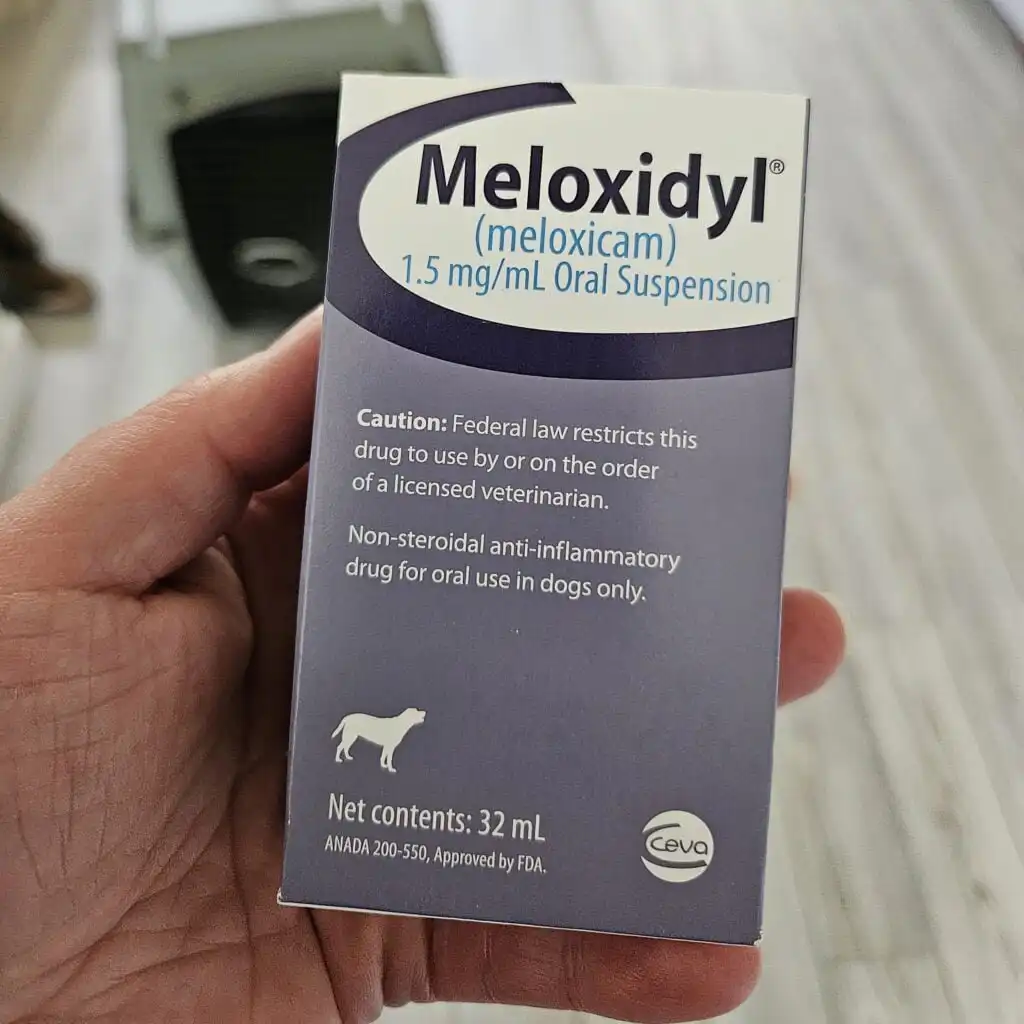
This takes some practice, and you need to be careful because you do not want the medication to go down the wrong pipe. Incorrect administration can lead to aspiration, where the medication enters the lungs instead of the stomach, causing respiratory issues. Administer liquids slowly and ensure the duck swallows properly.
I also gave our duck Penny calcium glubionate. The extra boost of calcium can help with the egg-laying process. Calcium is crucial for muscle function, including the muscles involved in egg laying. These muscles, such as the oviduct muscles, must contract efficiently to help push the egg out. Adequate calcium levels ensure these muscles have the strength to perform their job effectively. Without sufficient calcium, these contractions can weaken, making it difficult for the duck to lay the egg.
Supportive Care for the Night
We kept Penny inside for the night so she could rest and we could better monitor her. She got her own little playpen next to Krümel. We filled the playpen with pine shavings and had a water bowl with some snacks for her. As mentioned earlier, ducks need to stay hydrated. She was super lethargic all night long and didn’t want to eat anything.
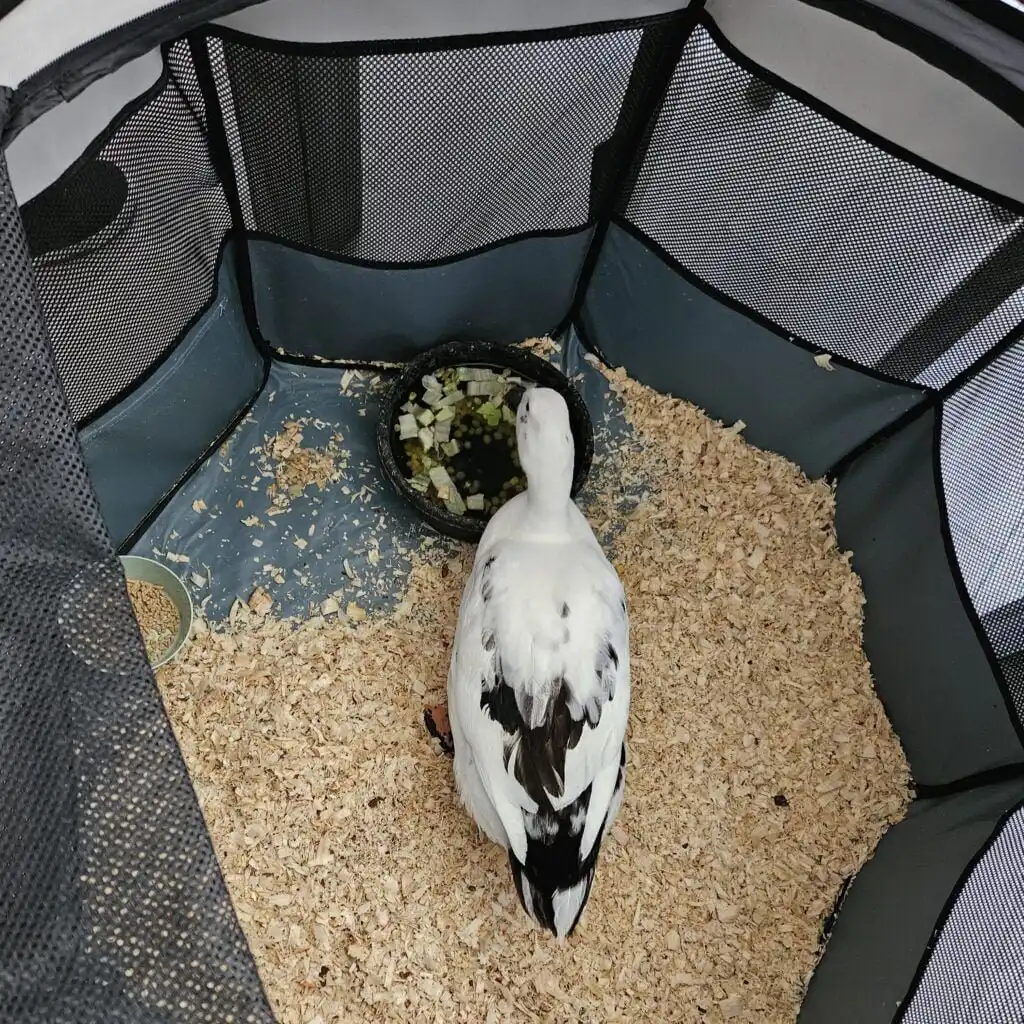
I checked on her a few times during the night. In the morning, there was still no egg or any changes, so we decided it was time to see a vet.
Veterinary Care for our Egg-bound Duck, Penny
We called the vet. Luckily, we found a new vet that takes exotic pets and birds just 15 minutes away. The other avian vet we used to see is about an hour away.
Like all birds, ducks have unique physiological and medical needs that differ significantly from those of more commonly kept pets such as cats or dogs. Avian specialists are not as common as general Veterinarians. This is because avian medicine is a specialized field that requires additional training and certification. As a result, finding a vet with the right expertise can be challenging, especially in rural or less populated areas. Find an avian vet at the Association of Avian Veterinarians.
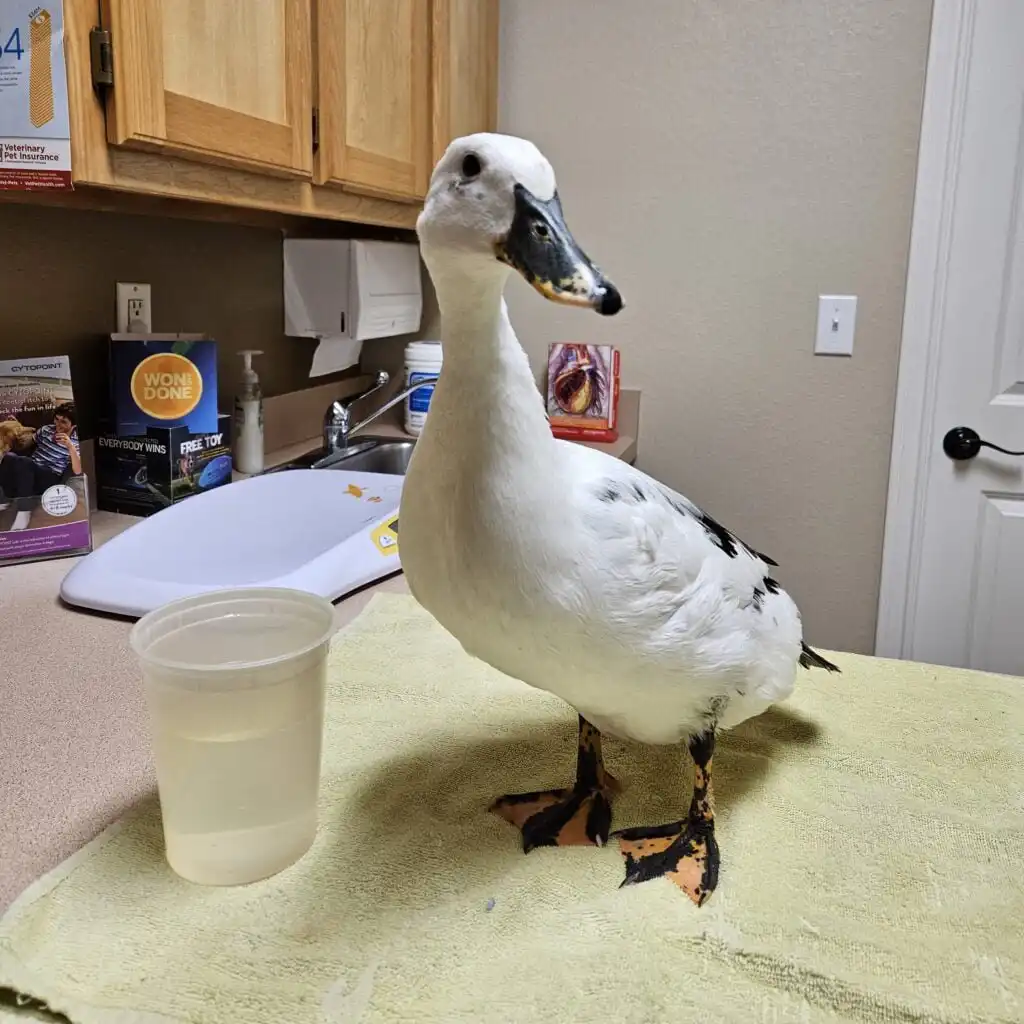
In emergencies, having access to an avian specialist can be lifesaving. They can quickly and accurately address critical issues such as egg binding. However, due to their specialized training and the complexity of avian medicine, avian specialists often charge higher fees than general veterinarians. This can include higher consultation fees, specialized diagnostic tests, and specific treatments tailored for birds.
The vet carefully examined our duck and took X-rays. The latter revealed that she indeed had an egg stuck inside her. It was sideways, which is why she had so much trouble getting it out.
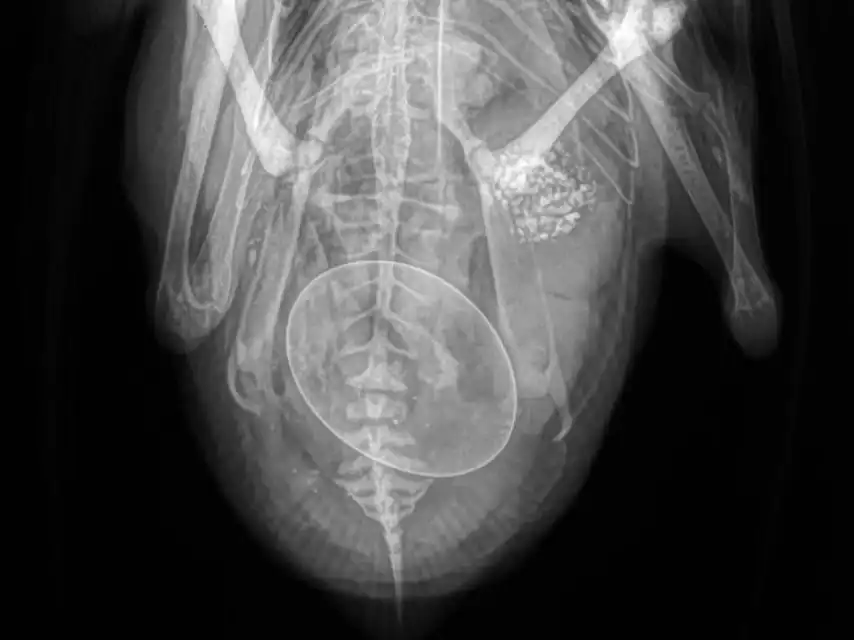
Treatment Plan for our Egg-bound Duck
The vet discussed treatment options with us. The best option was to leave Penny with them and hospitalize her. They kept her there to give her medication that was supposed to help her lay the egg. She got injections of oxytocin and calcium.
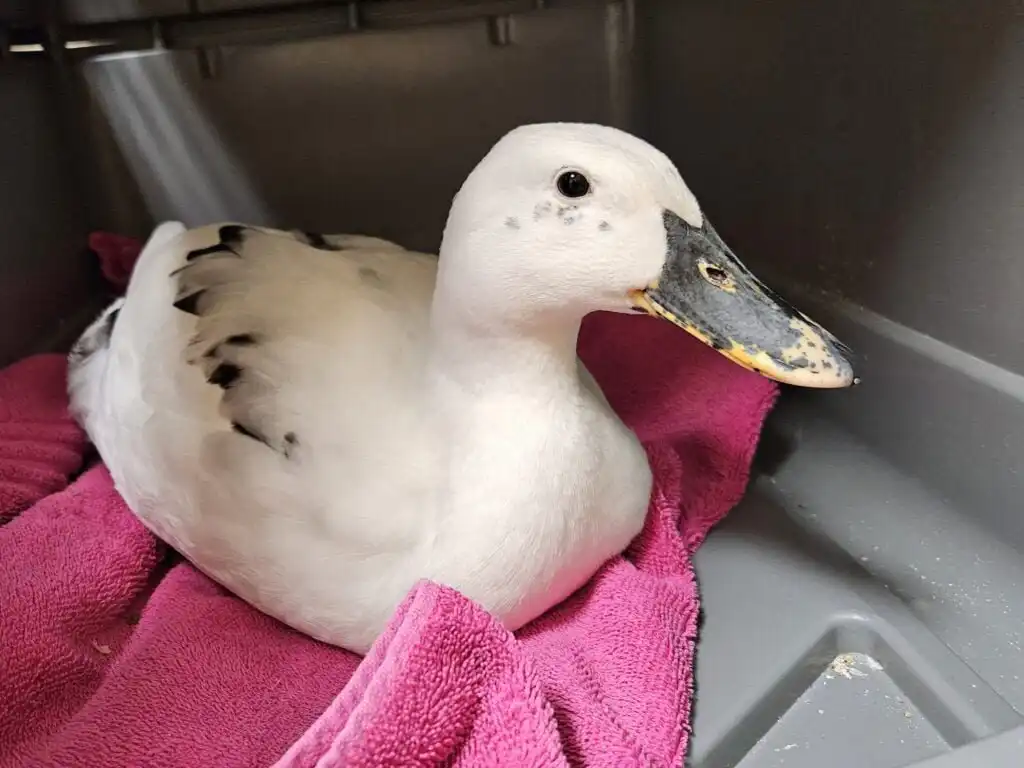
Oxytocin is a hormone crucial in various physiological functions, including reproduction. In egg-bound ducks, oxytocin is particularly important because it helps stimulate the contractions of the reproductive tract muscles, facilitating the laying process.
Oxytocin also has calming effects, which can help reduce the stress and discomfort associated with egg binding. Oxytocin is a naturally occurring hormone produced in the hypothalamus and released by the pituitary gland. It is well-known for its roles in childbirth and lactation in mammals.
After the second injection, she was finally able to pass the egg. Remarkably, it turned out to be a regular hard-shell egg rather than a soft one. This indicated that her calcium levels were adequate, and the egg was fully developed, just stuck due to muscle weakness or other physical obstructions. The successful passing of a normal hard-shell egg is a positive sign, showing that while the situation was serious, it didn’t stem from issues like calcium deficiency or abnormal egg formation.
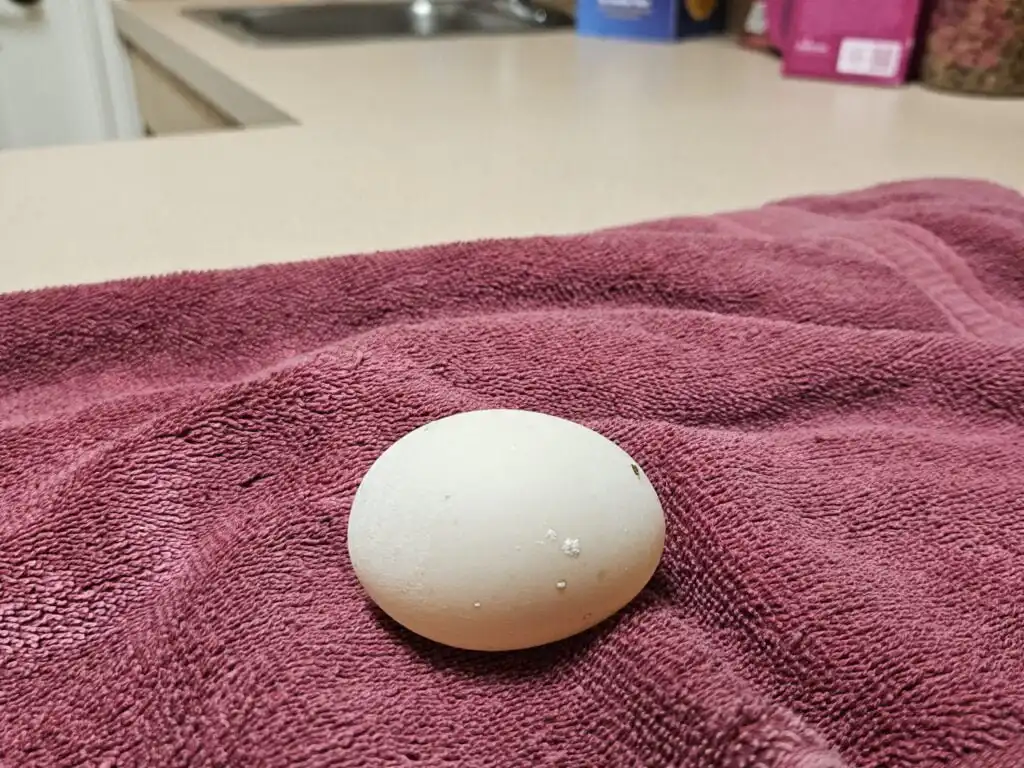
You can imagine how relieved I was when the vet called me to share the good news. I immediately went to pick her up.
After-care for Penny
I brought my duck Penny home, back into her playpen. She was still very exhausted from the egg-laying process. So, we gave her all the time she needed to recover. She was also still straining because of the Oxytocin. It took about two hours before the effect was wearing off. We kept her inside the rest of the day and the following night.
Mis Penny was already much better in the evening. She was playing with Krümel, and she got her appetite back. She started to eat normally. The next morning, she was again her sassy self. She woke us up at 6:30 a.m., quacking loudly, telling us it was time for her to go out to the rest of the flock.
The vet prescribed her meloxicam for the next three days. So, we administered the pain medication to her in the morning and evening before her meals. After a duck is treated with meloxicam, residues of the drug can remain in her system, including her eggs. Consuming these eggs can lead to unintended ingestion of the medication, which may be harmful to humans. This is why many regulatory agencies recommend or mandate an egg withdrawal period after administering certain medications to ensure that any egg drug residues are reduced to safe levels before human consumption. In our case, the vet recommended a withdrawal period of 14 days.
Our Penny is still doing fine after this incident. There have been no further stuck eggs so far. Cross your fingers that it stays this way.
And it is safe to say that this was the most expensive egg we ever had from one of our ducks. We ended up paying $517.93. I am highlighting this to inform you that ducks are not cheap pets and that people should be aware of them before bringing them home. They are a commitment and deserve the same care as more traditional pets like dogs or cats.
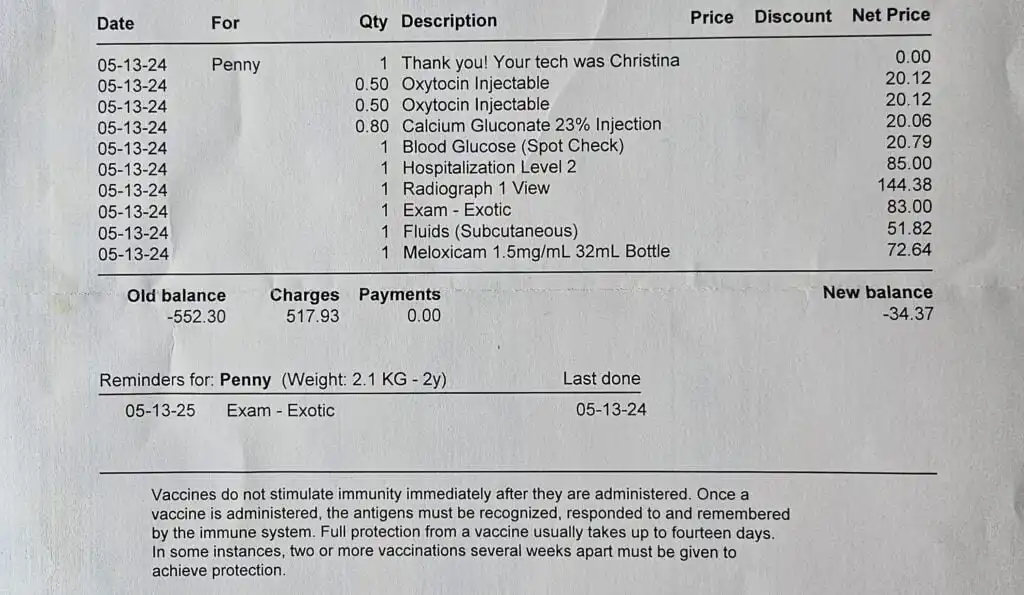
Key Takeaways of Egg-bound Ducks
Egg-binding in ducks, also known as dystocia, is a condition where a duck cannot expel an egg from her reproductive tract. Here’s a detailed explanation:
- Causes: Egg-binding can occur due to various reasons, including:
- Calcium Deficiency: Inadequate calcium levels can lead to weak eggshells or muscle contractions, making it difficult for the duck to pass the egg.
- Large or Misshapen Eggs: Eggs that are too large or irregularly shaped may get stuck in the reproductive tract.
- Obesity: Overweight ducks may experience difficulties in laying eggs.
- Stress: Environmental stressors or health issues can contribute to egg-binding.
- Reproductive Disorders: Certain reproductive abnormalities or diseases can increase egg-binding risk.
- Symptoms: Signs of egg-binding in ducks may include:
- Lethargy or weakness
- Straining or stretching
- Abdominal swelling or distension
- Difficulty walking or standing
- Reduced appetite
- Vocalization or distress
- Complications: If not addressed promptly, egg-binding can lead to serious complications such as:
- Rupture of the reproductive tract
- Infection
- Egg peritonitis (infection within the abdominal cavity)
- Tissue damage
- Death
- Treatment: Treatment for egg-binding in ducks may involve:
- Providing supplemental calcium to support muscle contractions.
- Warm baths or compresses to help relax the muscles and facilitate egg expulsion.
- Hydration to maintain the duck’s overall health and support egg passage.
- Veterinary intervention may include administering medications such as oxytocin to stimulate contractions or manually extracting the egg.
- Prevention: To prevent egg-binding, duck owners can:
- Ensure a balanced diet rich in calcium supports eggshell formation and muscle function.
- Provide a stress-free environment with adequate nesting areas.
- Monitor the duck’s weight and overall health regularly.
- Seek veterinary advice if any signs of reproductive abnormalities or health issues arise.
Egg-binding in ducks is a potentially life-threatening condition that requires prompt attention and veterinary care to ensure the well-being of the affected duck. ➡️ Learn more about egg-binding in our detailed post about this topic.
